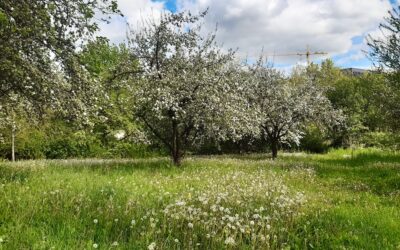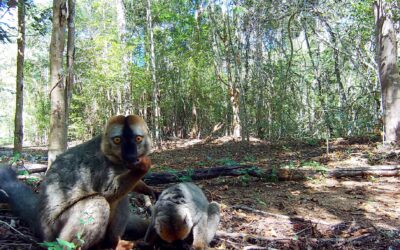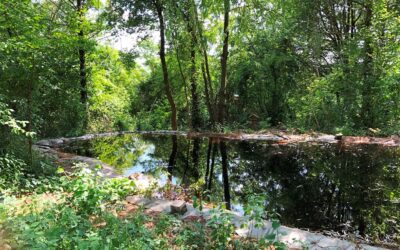Education for sustainable development
Environmental education in the Menabe Antimena Protected Area in Madagascar
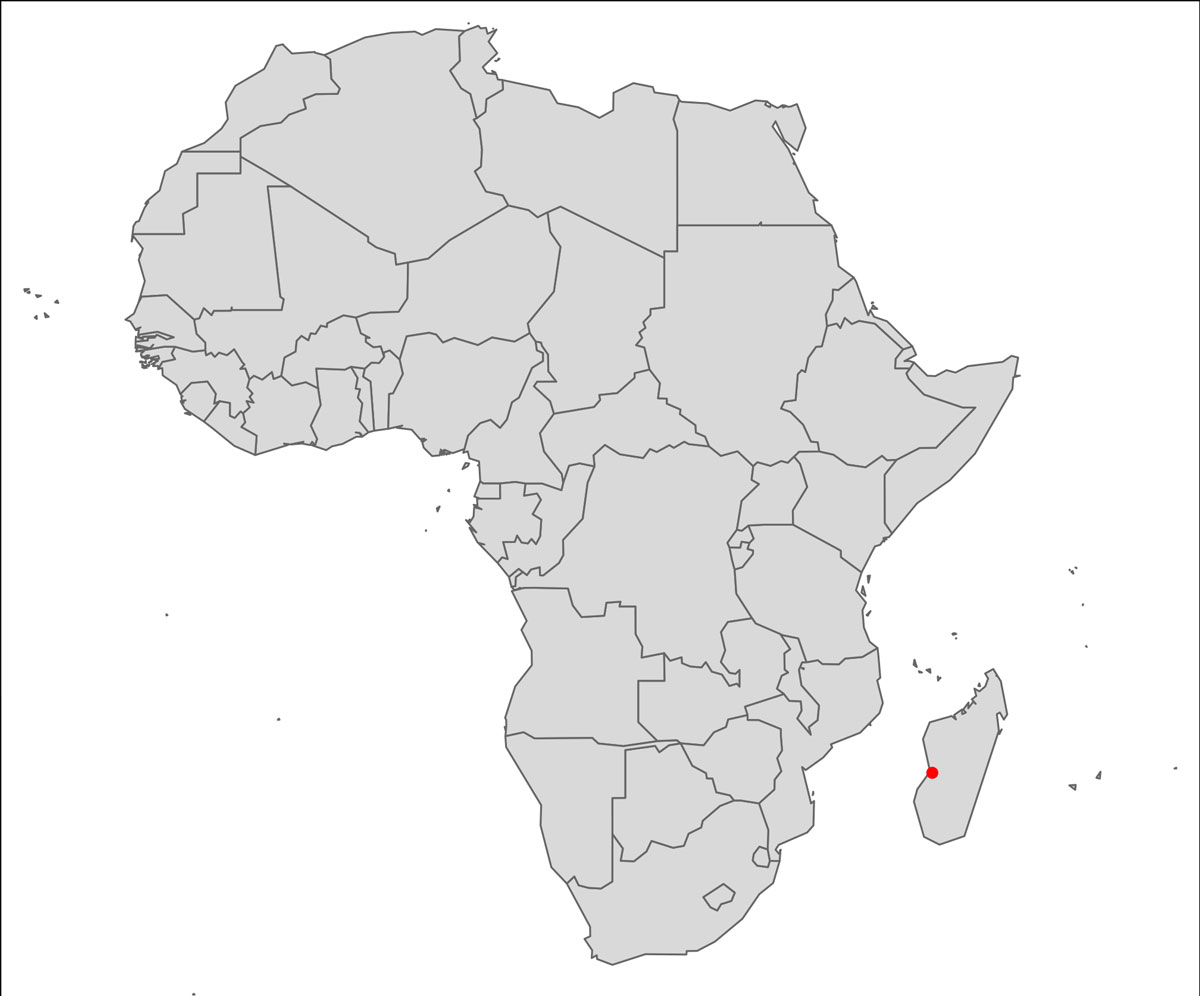
Kirindy, Menabe Antimena Protected Area Madagascar
Little Rangers have already participated in our environmental education camp
people have attended screenings with the mobile environmental cinema
About the project
Little Rangers – Understanding the ecosystem, learning about alternatives
Many children and young people only know the nature of their home region through hunting or collecting firewood and other forest products. To show them a different perspective on local nature, we created the Little Rangers program. With “Little Rangers” we raise the environmental awareness of the local population in Menabe for the uniqueness of the local nature. At the same time, we are contributing to the development of new and more effective approaches to environmental education in Madagascar through this project. Because in the future, the children and young people of today will decide about Madagascar’s natural resources.
As part of “Little Rangers”, we invite children and young people from the surrounding communities to the Kirindy Forest for three days at the Centre National de Formation et Recherche en Environment et Foresterie (CNFEREF). The German Primate Center (DPZ) from Göttingen has also maintained a research station in the area for over 20 years. The Kirindy Forest therefore offers the necessary infrastructure for accommodation and training of the Little Rangers directly in nature. The presence of researchers, students, and wildlife guides on site allows for simple, close-to-nature observations of wildlife while conveying the central (including economic) importance of preserving the forest for future generations. For example, the forest also provides numerous jobs in the region through nature tourism.
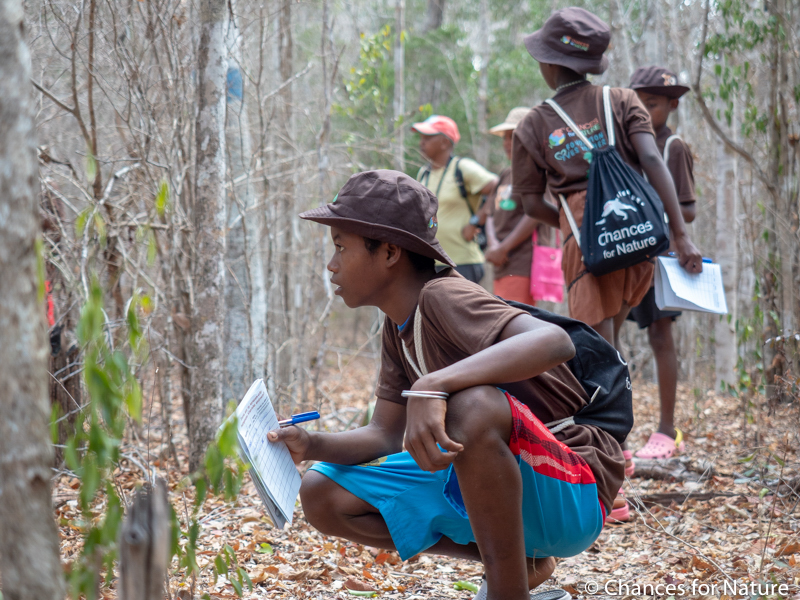
Children in the Kirindy Forest observing lemurs
A video about the Little Rangers
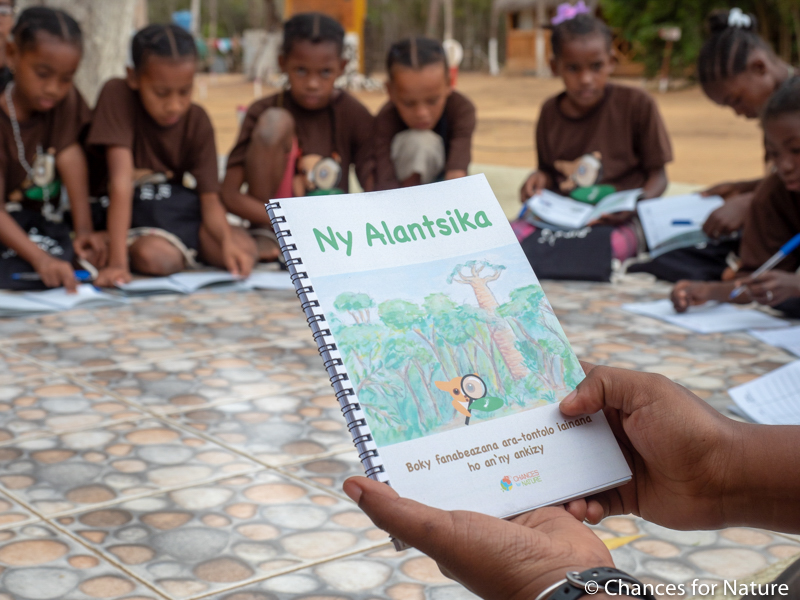
Support us
Support our environmental education in Menabe
For example, €6 will pay for a child’s meals and accommodation at the Little Ranger environmental education camp.
Little Rangers
experiential learning
The Little Rangers program teaches environmental content through positive experiences. The Kirindy forest offers with its numerous possibilities for animal observation the best conditions for it. We are constantly developing our three-day teaching program for this purpose.
Mouse lemur & Co
Nightwalks
Thanks to the “Little Sun” solar flashlight, the Little Rangers go on night walks in the Kirindy Forest. In doing so, the children usually discover a mouse or fork-marked lemur for the first time in their lives.
Wildlife observations
Be a scientist for once
The presence of researchers, students, and wildlife guides on-site allows for easy, nature-based observations of wildlife in Kirindy and allows children to see the forest and its inhabitants from a different perspectivethat is not focused on hunting.
New learning materials
Fun & Games
Learning materials and a card game about the animals of Madagascar spread a lot of joy among children and young people.
Modern school materials and learning games are very rare in Madagascar and many children know very little about the special nature of their homeland and how it relates to their own lives.
Playfully they learn about the fauna and flora of Madagascar.
show possibilities
What does a nature guide do?
Tourism is an important economic sector in Madagascar. The forest in Kirindy also attracts many visitors every year. Many local jobs are therefore tied to the preservation of the forest. The Little Rangers program gives children an insight into the everyday life of a nature guide and motivates them to continue their education and opens up prospects for the future.
understand interelations
Ecosystems
The Little Rangers program teaches important interelations between nature and people. The children and young people should understand why a functioning ecosystem is important and learn about alternatives that allow them to deal with their environment in a more sustainable way.
A mobile bicycle cinema
Disseminate new techniques for agriculture. Teaching people about your own country and nature. What is the easiest way to do that for many people at once? Right. With television. But what to do when no one has a TV, or there is no electricity for a TV at all?
The solution: a bicycle-powered cinema that is powered only by muscle power and is small enough to be taken anywhere.
Since 2014, we have been spreading knowledge and raising awareness among the population with our mobile cinema.
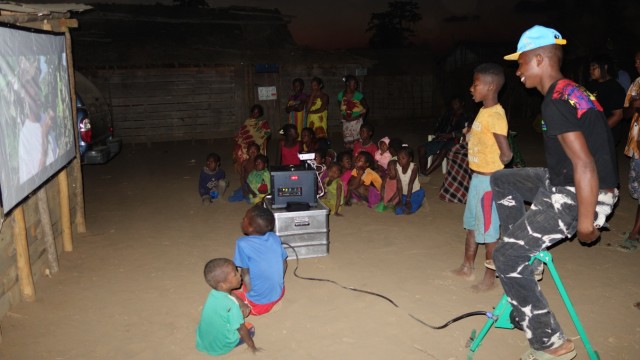
The mobile bicycle cinema in action in Lambokely (Photo: Ernst Golde)
Our environmental education film in Malagasy. “Hazo tokana tsy mba ala” literally means “One tree is not yet a forest”. The text is also a Malagasy proverb and symbolically means “Only together we are strong and can achieve something!”
Bicycle Cinema
muscle power operation
One person (or more) pedals to generate the power to run the speaker and projector. In this way, many people can be reached at the same time, even in villages without electricity. In parallel, we offer practical training sessions on the content shown in the film, such as building energy-efficient stoves.
Environmental film
Get to know alternatives
An environmental film in the Malagasy language shows various sustainable techniques, such as the use and production of ecological stoves or the breeding of fish in rice fields. The examples are demonstrated by other Madagascans who are already using these techniques successfully, thus making the advantages comprehensible.
Knowledge transfer
Times reversed
Modern media are a good way to pass on knowledge. That works for us, too. The picture shows the replica of the bicycle cinema in the bird park Marlow. The cinema serves here as an information stand for visitors and shows a short film about the project.
Partners & Supporters
The projects are funded by:
Affenberg Salem
La Forêt de Singes
La Montagne de Singes
Little Sun Foundation
Nds. Bingo Environmental Foundation
Tierpark Berlin
Trentham Monkey Forest
Marlow Bird Park
Zoo Ausgburg
Zoo Berlin
The projects are implemented together with:
Local communities
Centre National de Formation et Recherche en Environment et Foresterie (CNFEREF)
DPZ Madagascar
Don’t Miss
News
We inform about news in our blog and on Facebook.
New research initiatives in our biotope project
For a good year now, the biotope renaturation on the grounds of the German Primate Center has been running with our support and we are very pleased that the first research work could already take place on site: students from the University of Göttingen investigated...
How efficient is the reforestation? Study on restoring destroyed forest areas in Kirindy
Every year, fires threaten and destroy the remaining natural habitats of Madagascar. Our project area in the Kirindy Forest is also acutely threatened by this. Due to slash-and-burn agriculture, deforestation in the region has steadily increased since 2010 and reached...
Mission on our doorstep: our biotope project in Göttingen
At the beginning of the year, we were very happy about the start of our first nature conservation project in Germany: since then, we have been supporting the renaturation of a biotope for native flora and fauna on the grounds of the German Primate Center in Göttingen....

